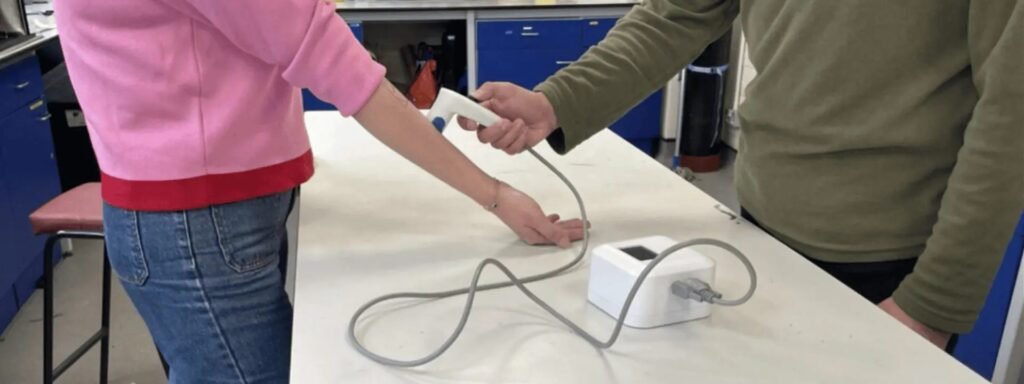Skin conditions like eczema and psoriasis affect millions of people and can be difficult to manage due to their unpredictable flare-ups. Researchers at Heriot-Watt University have developed a new skin-sensing technology that could change how these conditions are monitored and treated. The system uses a flexible, wearable sensor to track changes in skin hydration, inflammation, and barrier function in real time.
The sensor is designed to be comfortable and unobtrusive, adhering to the skin without causing irritation. It collects data continuously and transmits it to a mobile device, allowing users and clinicians to monitor skin health throughout the day. This real-time feedback can help identify triggers, track treatment effectiveness, and adjust care plans more precisely.
One of the key innovations is the sensor’s ability to detect subtle changes before symptoms become visible. By identifying early signs of inflammation or dryness, the device can prompt users to apply moisturizers or medications before a flare-up occurs. This proactive approach could reduce discomfort and improve long-term outcomes.
The technology also supports personalized care. Data collected from the sensor can be used to create individual skin profiles, helping dermatologists tailor treatments to each patient’s unique needs. The researchers are exploring how machine learning could further enhance this process by predicting flare-ups based on environmental factors and skin responses.
Initial trials have shown that the sensor performs well across different skin types and conditions. Participants reported that it was easy to use and provided valuable insights into their skin health. The team is now working on refining the design and preparing for broader clinical testing.
Article from Heriot-Watt University: Revolutionary skin sensing technology set to transform eczema and psoriasis

